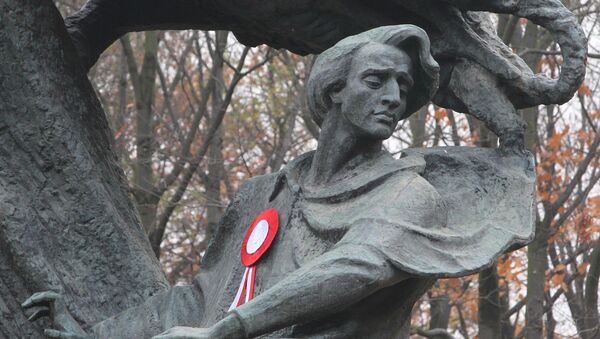Like many people of art, Frederic Chopin had a passionate nature. His passion was for his homeland, Poland, and it shined through most of the works of the renowned 19th-century composer. Chopin had a happy childhood in Warsaw, picking up studying music early and then making his debut concert in Vienna, three weeks after completing his studies at the Warsaw Conservatory. This opened the door to Europe for the young composer, and he set out to unleash his musical talents upon the world with his close friend Tytus Woyciechowski. It seemed that a shining and fulfilling career was ahead of Chopin – but everything changed in November of 1830.
Woyciechowski had to leave for Warsaw to enlist, leaving Chopin alone in Vienna. In one of the many letters that he wrote to his friends and family in Poland, Chopin admitted: “I curse the moment of my departure, and you will "agree (knowing the situation I am in) that since [Tytus] left, too many troubles have fallen on my head all at once.” The letter is very carefully worded and does not refer to the uprising – and the same goes for the rest of the correspondence. In the Selected Correspondence Of Fryderyk Chopin by Arthur Hedley, a British musicologist, scholar and biographer of Chopin, he writes:
If Chopin appears in his letters to show surprisingly little concern at what was happening in Poland it must be remembered that he knew his letters were being censored and the slightest indiscretion on his part would lead to immediate expulsion from Vienna. He could only refer obliquely to political events. Titus had at once returned home on hearing the news and Chopin had wanted to go with him but had been persuaded to stay where he was.
Chopin moved to Paris in 1831, around the time the Warsaw uprising was thwarted: it would have been unwise for him to return, given his political views and friendships. Eventually receiving French citizenship, he became one of the notable personalities of the so-called Polish Great Emigration. Although he was well-known and sough-after among both the local high society and Polish nobility in exile, it was not enough for him. He retained close ties to Poland through correspondence, but he felt lonely and melancholic. In one of the letters home he wrote: “You will imagine that I am making a fortune…I'm a revolutionary myself so I care nothing for money, only for friendship…”
In the Cambridge Companion to Chopin, Jim Samson, Badock Professor of Music, suggests:
There was something of the professional exile about Chopin. Life in France agreed with him and he quickly put to the back of his mind any thought of returning to his homeland (he could easily have done so when the Czar offered the first of many amnesties in 1833)… For many nineteenth-century Polish listeners Chopin came to symbolise the national struggle, helping to cement the Polish spirit at a time when the was without political status.
Chopin remained in exile for the rest of his life, expressing his support for the homeland the best way he could – through music.

